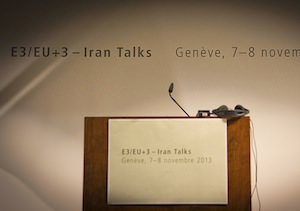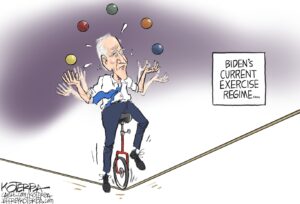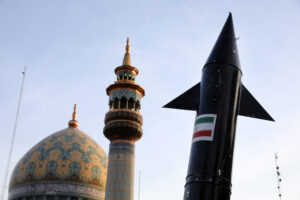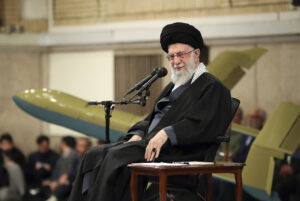Iran Nuclear Deal Reached
Updated: In exchange for the released of "just over $4bn in Iranian oil sales revenue from frozen accounts" and the lifting of suspensions on "the country's trade in gold, petrochemicals, car and plane parts," Iran has agreed to restrict its nuclear activities.
In exchange for the released of “just over $4bn in Iranian oil sales revenue from frozen accounts” and the lifting of suspensions on “the country’s trade in gold, petrochemicals, car and plane parts,” Iran has agreed to restrict its nuclear activities.
The pact is being called the “most significant agreement between Washington and Tehran since the 1979 Iranian revolution.” The benefits for Iran would help revive the country’s all but crippled economy.
The Guardian reports:
Over the next six months [Iran] has agreed to:
• stop enriching uranium above 5%, reactor-grade, purity-dilute its stock of 20%-enriched uranium or convert it to oxide, which makes it harder to enrich further. The medium-enriched uranium, in its hexafluoride gas form is relatively easy to turn into weapons-grade material used in a weapon, so it is a major proliferation concern.
• not to increase its stockpile of low-enrichment uranium.
• freeze its enrichment capacity by not installing any more centrifuges, leaving over half of its existing 16,000 centrifuges inoperable.
• not to fuel or to commission the heavy water reactor it is building in Arak or build a reprocessing plant that could produce plutonium from the spent fuel.
• accept more intrusive nuclear inspections by the International Atomic Energy Agency, including daily visits to some facilities
The six-month life of the deal is intended to create a pathway to a comprehensive and permanent agreement that would allow Iran to pursue a peaceful nuclear program, “almost certainly including enrichment, but under long-term limits and intrusive monitoring, that would reassure the world that any parallel covert programme would be spotted and stopped well before Iran could make a bomb,” The Guardian reports.
An essential view into the ghastly human cost of the sanctions was given by journalist and Truthdigger of the Week Andrew Cockburn here.
— Posted by Alexander Reed Kelly.
Your support matters…Independent journalism is under threat and overshadowed by heavily funded mainstream media.
You can help level the playing field. Become a member.
Your tax-deductible contribution keeps us digging beneath the headlines to give you thought-provoking, investigative reporting and analysis that unearths what's really happening- without compromise.
Give today to support our courageous, independent journalists.






You need to be a supporter to comment.
There are currently no responses to this article.
Be the first to respond.